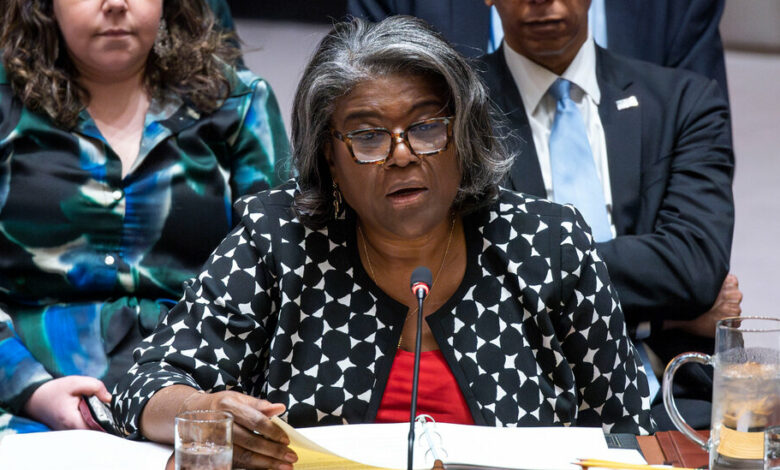Two universities cancel UN ambassador’s speeches

In less than a week, two universities have revoked invitations for speeches by U.S. Ambassador to the United Nations Linda Thomas-Greenfield over student opposition to U.S. support for Israel during the war in Gaza.
Xavier University, a historically black institution in New Orleans, rescinded its invitation to Ms. Thomas-Greenfield earlier this week, saying a statement that “a number of students” had objected to giving a graduation address. Xavier President Reynold Verret expressed concern about the potential disruption to this weekend’s graduation ceremony, and concluded that Xavier could no longer host her – a situation he called “regrettable.”
Mr Verret added that he looked forward to Ms Thomas-Greenfield, one of two black women holding the position of ambassador to the UN, visiting the school and speaking “in the future”.
The University of Vermont announced last week that Ms. Thomas-Greenfield would not speak there, agreeing to a key demand by student protesters who set up an encampment on the Burlington campus. The school’s president, Suresh Garimella, notified the student organization last week that Ms. Thomas-Greenfield would not be speaking at graduation, writing, “I see you and hear you.”
A spokesperson for Ms. Thomas-Greenfield said in a statement that the ambassador looked forward to “continuing to engage youth on campuses” and elsewhere, noting that she had recently spoken to high school students in Pennsylvania.
Opponents of Israel’s military campaign in Gaza, which Palestinian health authorities say has killed more than 30,000 people, have focused some of their anger on Ms. Thomas-Greenfield for leading US efforts in the Gaza Strip. Security Council to block the conflict. Several resolutions calling for a ceasefire. She opposed the resolutions on the grounds that Hamas, whose October 7 attack on Israel killed 1,200 people, had not agreed to the release of the hostages taken that day.
Still, the United States abstained from voting on a ceasefire resolution in March, a sign of the Biden administration’s growing dissatisfaction with Prime Minister Benjamin Netanyahu’s handling of Israel’s war effort. That abstention allowed the resolution to pass the Security Council, breaking a five-month deadlock.




